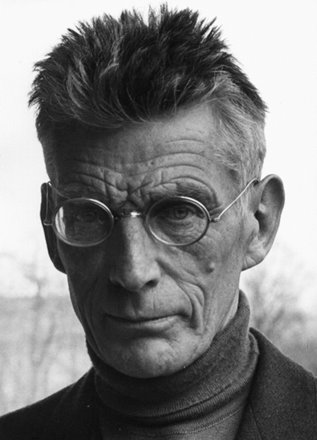Gottfried Büttner on an enduring philosophical influence

'As a young man, Beckett read Schopenhauer again and again, and not only because of his beautiful style, despite his claims to the contrary. Schopenhauer's pessimism was very close to Beckett's own, and he was to heed the three ways of enduring the misery of existence that Schopenhauer recommended: art, or aesthetic contemplation, compassion, and resignation.'
Gottfried Büttner
With the exception of an hour here and there, I've spent the day in bed negotiating with my lungs, the old dust bags. I thought I'd brush up on my European philosophy, and given my state of mind it wasn't long before Schopenhauer appeared on the scene. Arthur Schopenhauer, a philosopher of the grand pessimistic tradition of misanthropy and resignation. In short: perfect bedtime reading - especially for someone who's annotating Malone Dies in between.
One of the key draws to Schopenhauer has been his influence on Samuel Beckett, an influence that cannot be overstated. The philosopher not only had an impact on Beckett's academic development, and interest in philosophy, but later a more profound effect on the way the writer lived his life. Schopenhauer had a large effect on Beckett's outlook on the world, and the influence is recounted time and again in biographies of the writer, notably James Knowlson's Damned to Fame. When suffering from an illness, Beckett once confided to a friend:
'[...] the only thing I could read was Schopenhauer. Everything else I tried only confirmed the feeling of sickness. [...] I always knew he was one of the ones that mattered most to me, and it is a pleasure more real than any pleasure for a long time to begin to understand now why it is so. And it is a pleasure also to find a philosopher that can be read like a poet.'
quoted in James Knowlson, Damned to Fame
Gottfried Büttner has written a short article tracing the influence of Schopenhauer's pessimistic philosophy on Samuel Beckett's life and work. 'Schopenhauer's Recommendations to Beckett', first published in Samuel Beckett Today, draws upon Beckett's novels and theatrical work, but seems particularly interested in anecdotes from the writer's life - notably, from James Knowlson's acclaimed biography. It's a concise overview, but for all its brevity it's still worth a look. The essay is freely available online, and you can read it by clicking here.


